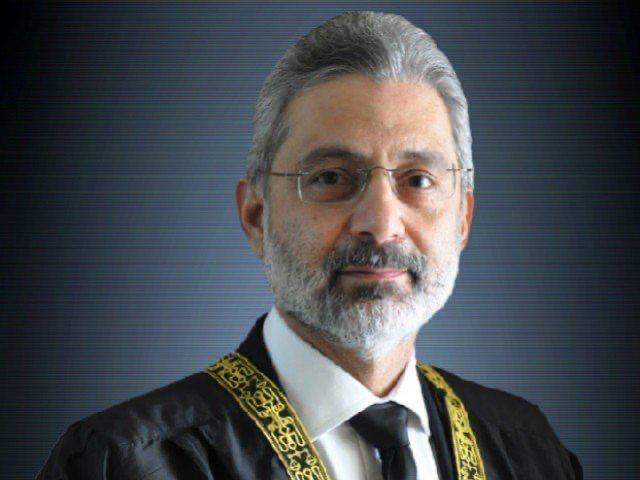
Supreme Court judge Justice Qazi Faez Isa on Saturday asked the people to criticise individuals, not institutions – noting that there were “good” and “bad” in all of them.
“Judge us as judges. Condemn me as a judge, [but] do not condemn the Supreme Court,” he added in his speech at this year’s Asma Jahangir Conference.
“I would only request that you don’t judge us as an institution because there is good in the institution; there is also bad in the institution,” he noted.
Stressing the need for democracy, he observed that the country needed the judiciary, executive, military and to be led by the elected representatives of the people.
The judge told the participants that as the people, they were the ones who could judge the judges “individually”.
Also read: Justice Isa seeks early JCP meeting
Justice Isa welcomed criticism as he would never initiate contempt proceedings against anyone.
But he added that the people should not criticise the institutions.
The reason he gave for this was that without an institution, a country would split apart.
“I was chief justice at the Balochistan High Court for five years and judges cannot say that they are under pressure. If someone says that he is under pressure then he is not following the oath he has taken,” he observed.
The judge heaped praise on late Asma Jahangir for her services not only as a lawyer, but also as a human rights activist.
Justice Isa said the first attack on the country’s democracy was carried out by a bureaucrat, Ghulam Muhammad.
The final draft of Pakistan’s first Constitution was prepared in 1954.
By that time, Muhammad Ali Bogra had assumed the office of the prime minister. However, just before the draft could be presented before the House for approval, the assembly was dissolved by then Governor General Ghulam Muhammad on October 24, 1954.
The judge listed the popular acronyms used in recent times — the JIT (joint investigation team), PCO (Provisional Constitutional Order) and CMDC ( Citizen’s Monitor of Democracy and Constitution) – the one he had coined himself.
The CMDC would give the people the right to monitor those whose salaries and pensions they paid.
He added that the the CMDC should have “a black, a grey and a white list”.
“In my personal opinion, speaking as a student of law, not as a judge, but as a student of history and politics, I would put in the black list Justice Mohammad Munir, Justice Anwarul Haq and Justice Irshad Hassan Khan,” he noted, while starting off with his own institution, the judiciary.
For the “white list”, he named Justice Constantine, Justice Achal and Justice Mohammad Baksh.
He observed that he would place General Ayub Khan, General Ziaul Haq and General Pervez Musharraf in the “black list” as far as the executive was concerned.
“I would put in the white list two white Englishmen not because they are white. The first Commander in Chief of Pakistan Army, General Sir Frank Walter Messervy and the second Commander in Chief of Pakistan Army, General Sir Douglas Gracey,” he added.
Justice Isa also listed the various methods through which prime ministers in the country’s history had been assassinated, removed, and hanged.
Also read: Justice Isa questions talks with terrorists in Swat
They included Liaquat Ali Khan, Khwaja Nazimuddin and Zulfikar Ali Bhutto.
He recalled an interview of a chief justice and said it had brought tears to his eyes. “That chief justice had said that the verdict of the Bhutto case was given under pressure,” Justice Isa added.
The judge said Bhutto was tried by a civil court, not a military court.
“I was on the bench that took up the case of the establishment of military courts. I was the most junior judge and a part of the minority decision,” he added.
Without mentioning the name of PML-N supremo Nawaz Sharif, the judge lamented a prime minister being disqualified for not disclosing the salary from his own son’s company.
“He was ousted [from his post] for not being a ‘good Muslim',” he quipped.
Justice Isa stressed on the need for every Pakistani to follow the Constitution.
(With input from agencies)






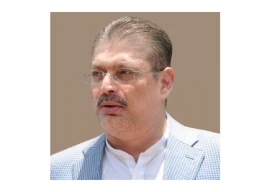


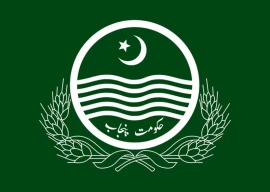


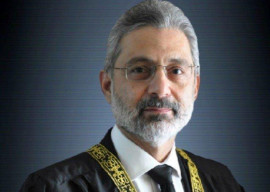
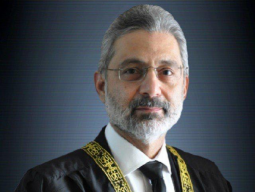
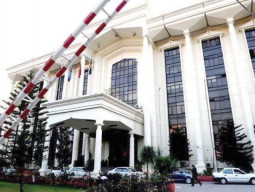

1727268465-0/Untitled-design-(42)1727268465-0-270x192.webp)




COMMENTS (1)
Comments are moderated and generally will be posted if they are on-topic and not abusive.
For more information, please see our Comments FAQ